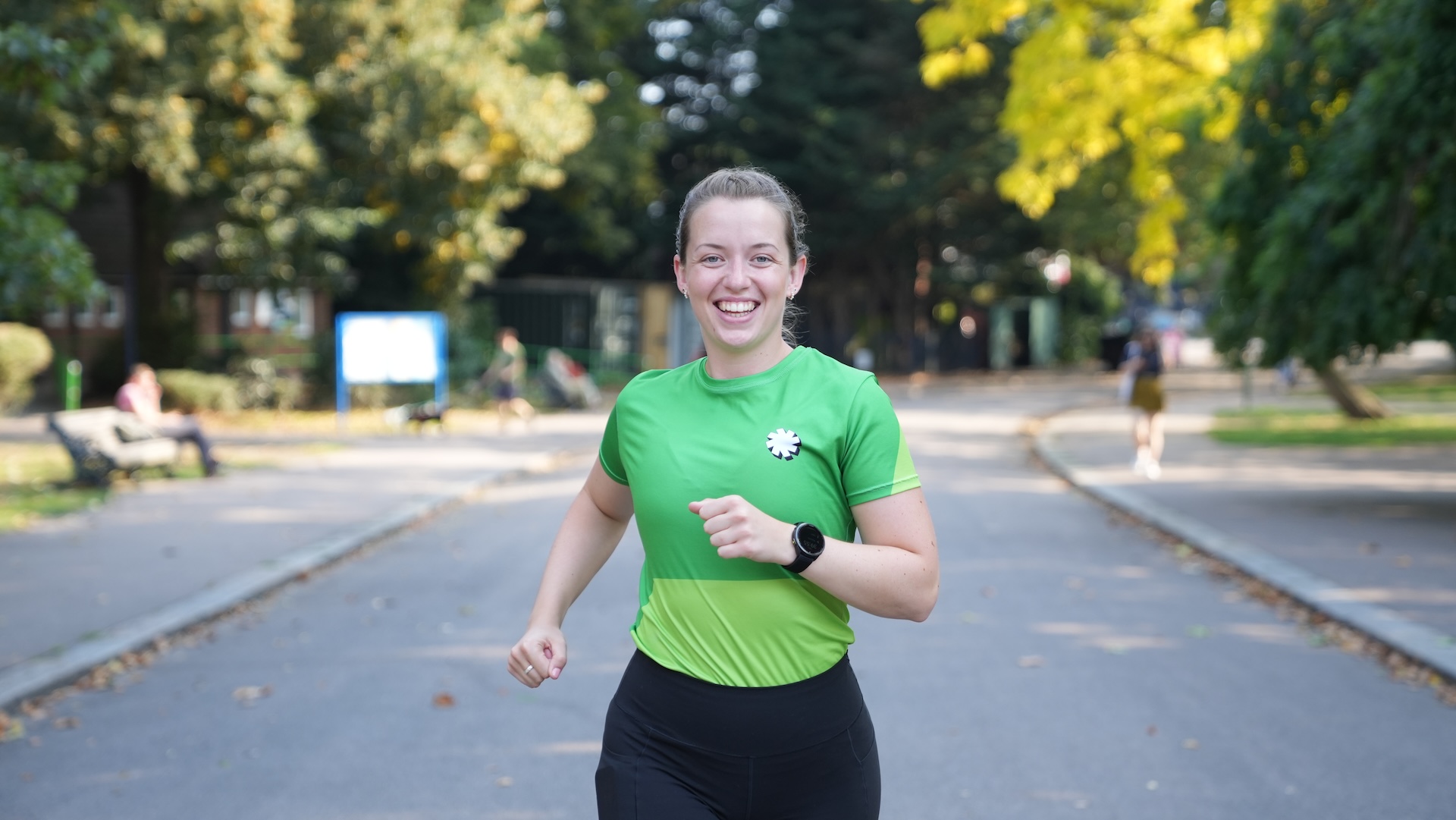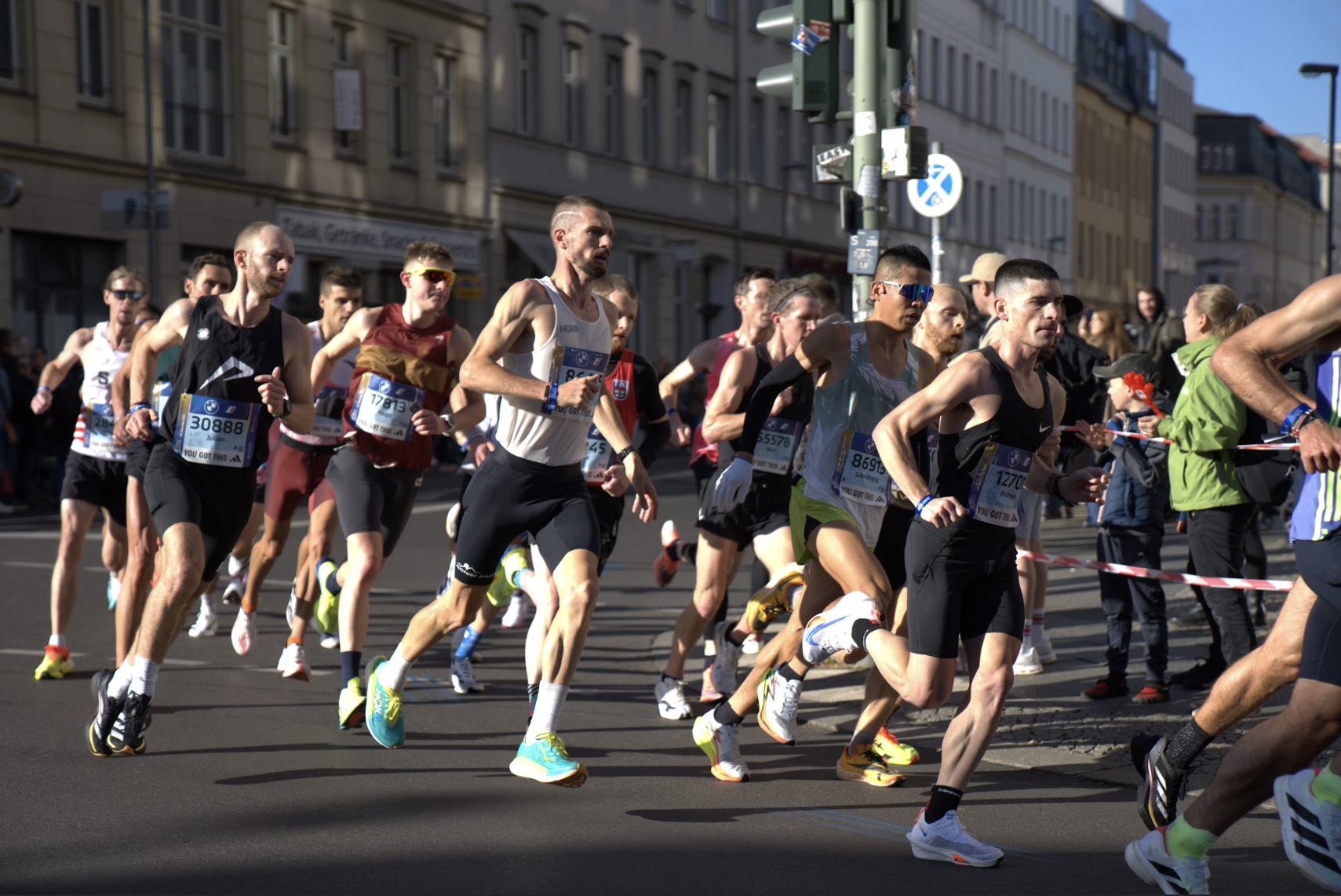The Do’s & Don’ts Of Tapering For A Marathon

Tapering is one of the most important parts of marathon training as it helps you get to the start line of your race feeling fit and healthy.
Tapering means we reduce the volume of running in the final two to three weeks before race day and this helps to leave us feeling fit and fresh for the marathon.
But tapering for a marathon can be a challenging couple of weeks for runners, both physically and mentally, where we can feel like we aren’t ready, or experience ‘Maranoia’, the strange phenomenon of pre-marathon paranoia.
To help you through that, here are all the do’s and don’ts of tapering for a marathon, plus here’s an article about everything to do in the week before a marathon.
Do Remember That You’ve Done The Training
We can feel all sorts of strange things during a taper. The ‘Maranoia’ is real in the final days before the race. You don’t feel ready, you’re restless, you’re anxious, you start feeling phantom niggles, you go for a run and feel sluggish…
Tapering is essential for a marathon, but unfortunately Maranoia is part of that process for many of us. Just remember that you’ve done all the training you can and that you are ready to take on 26.2 miles.
Think back to some of the best runs you did in your training and take confidence from them. Remember all of those workouts, all the long runs, all the easy runs.
Don’t Try To ‘Cram’ Fitness
Unlike last-minute studying for an exam, you can’t cram fitness into the last week or two of training.
If you haven’t done the training you hoped to do, then now is the time to reassess your goals and set a more realistic target. The final two weeks of running are there to help you continue moving and practise some race pace blocks, but otherwise the priority is on taking it easy and getting ready to race.
Do Plan Ahead For Your Carb-Loading
Whether you’re someone who plans meals or not, it’s a good idea to think about the food you’ll want in the days before your race when you’re carb-loading. Try and work out meals that you know you’ll want, think about how much of these foods you want, the snacks you might like to have, and plan for hydration as well with energy drinks (or drink mix) and electrolytes.
Don’t Lift Weights
You’re trying to rest your legs so that they feel strong on race day. Doing squats and lunges is going to put unnecessary load through them, and increases your risk of injury and fatigue.
If you like to be consistent with strength work then bodyweight exercises are typically fine, or work on mobility instead. You could do an upper body workout if it’s something you like in your routine, but don’t do anything within two days of the race to allow for recovery (even though it’s your arms that are getting worked out, the body still has to deal with the recovery as a whole).
Do Sleep More & Prioritise Recovery
Go to bed earlier, take naps, wake up a little later. Sleep is key in the weeks before your race to optimise your recovery. As you’re running less than you had been, treat yourself to some extra time in bed. It’s a good idea to consider avoiding or cutting down on things that might affect your sleep, like alcohol and caffeine. If it’s something you did in your training, then spend more time on mobility and things like foam rolling.
Don’t Worry About Things You Can’t Control
But do be prepared for them.
If it’s going to rain or be hotter than expected, then make sure you’ve got the most appropriate clothes and accessories. Otherwise, control things like your nutrition, where you plan to eat the night before the race, how you’ll get to the start, what you’ll pack in your drop bag. Lots of unexpected things can happen on race day, but you can’t worry about them in advance because they may not happen.
Do Check On Yourself, But Don’t Worry Too Much (Unless It’s An Actual Injury)
Maranoia is normal for all runners, and we feel aches and niggles where we’ve never had them before – often it’s just your mind playing mean tricks on you.
But make sure you check on yourself to make sure that those aches or niggles are actually OK, or whether you might need a physio appointment to check something out. If you have a genuine injury, then consider not running the race – you don’t want to make your injury worse by running on it for several hours. There are many more marathons that you can enter in the future.
Don’t Try New Things
Now isn’t the time to do things you haven’t done before. If you’ve never had a massage before, then don’t book one before your race. Don’t have a sauna or use an ice bath if you haven’t done it. Don’t run in new shoes or eat foods which you don’t know very well. Be as boring as possible because after the race you can do whatever you want!
Do Visualise Success & Think Positive
Imagine how it’s going to feel when you cross the finish line. Think about the reasons why you want to do this, whether it’s for the personal challenge, for someone’s memory, or even just the kudos on Strava. Think about what will help you to stay positive during the race. Come up with a mantra or saying that’s specific and meaningful to you for this race. Here’s more advice on mental strength and resilience.
Don’t Worry If Your Legs Feel Heavy & Strange
It’s a strange phenomenon that a few days before your race, when technically you’re at your optimum fitness and at your most rested, and you go for a run and your legs feel alien to you.
They’re awkward, heavy, your stride feels off. Don’t panic. Just run steady and controlled, don’t try to run slower or faster than normal. These final runs are there to help get your blood flowing and your body moving. On race day your legs will be fine!
Do Things Which Help You Feel Relaxed
This could be anything from yoga to going for a nice walk. Cook good meals, watch some movies, take a long bath, read more, paint or draw. Choose activities which help you to feel calm and relaxed – marathon training can be exhausting physically but also mentally, and it’s important you give your mind a rest during the taper.
Don’t Worry If You Have To Skip A Run This Week
It’s better to do too little running than too much this week. If you don’t feel like running, if you feel fatigued or even a little ill, then don’t worry about it. Skipping a 20 minute run won’t make any difference to your marathon. You can’t add fitness in the final week, but you could ruin your chances of a good race by doing too much (there’s this well-known phrase about tapering: the hay is in the barn; don’t set it on fire!).
Do Get Your Carb Load Right
There’s an optimum way for each person to carb load, and it’s individual based on your size and your food preferences. Carb loading can be confusing (it doesn’t just mean stuffing your face with as many calories as possible), so we’ve written a simple guide to carb-loading here. Focus on foods you like eating and reduce protein and fats and increase carbs. Also increase your hydration before your race and add some electrolytes to your drink.
Don’t Forget How Much Progress You’ve Made
Training for a marathon is a big deal. Think back to some of the first runs of your training block and what they looked like and how they felt. And compare them to the final long runs you did in training.
There’s a huge difference between those runs and it shows just how much progress you’ve made as a runner. You’re ready for your marathon. Have a great run!
***
Here’s a helpful guide to what to do in the final week before your marathon.




























Running News
Ingebrigtsen Stars at World Athletics Indoor Championships 2025 – Plus All The Winners!
Sam Ruthe Is First 15-Year-Old To Run A Four-Minute Mile!
Eliud Kipchoge Will Run The 2025 Sydney Marathon!